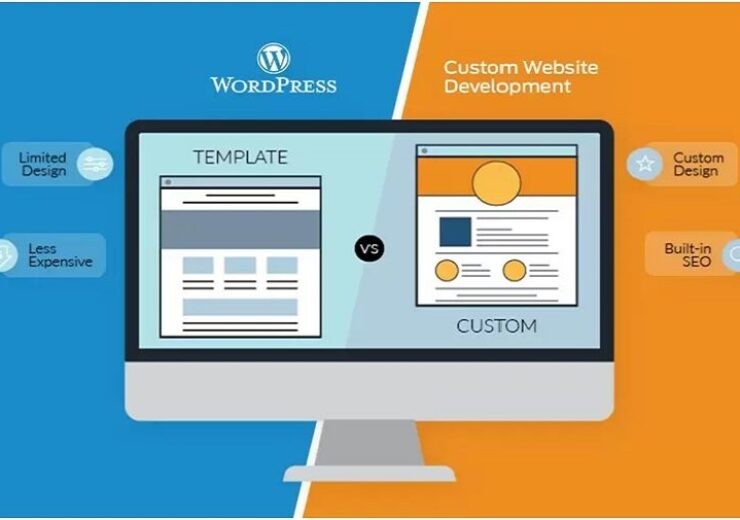Mastering HTML and CSS: Building the Foundation of Web Development

Those unfamiliar with web development frequently inquire, “Is HTML a programming language?” or “Is CSS a programming language?” The answer is not. All web pages rely on these technologies, which play fundamental roles in determining the presentation and formatting of content. In this post, we’ll review some of the most frequently asked questions about HTML and CSS, aiming to shed light on their function, the distinction between them, and their importance in today’s web design and development.
Explain what the Internet is
—————————————-
The Internet is a global system of interconnected computer networks that exchange information and data. An IP Address is a unique number that may be used to identify and find a machine online. This is an example of an Internet Protocol address: 168.212.226.204
A definition of the World Wide Web.
—————————————-
The World Wide Web is a specific type of Internet. Like any other computer network, the Web has two primary parts: the client (your computer) and the server (where all the information is stored). The data is requested by the client and then provided by the server. This can be accomplished if both parties come to an understanding. The acronym “API” refers to the formal name for this pact: “Application Programming Interface.”
However, this information must be organized and presented in a way that is accessible to end-users with varying levels of technical expertise. This is where knowledge of markup languages like HTML and CSS and scripting languages like JavaScript comes into play.
Is HTML a Language for Computer Coding?
—————————————-
Technically speaking, Hypertext Markup Language (HTML) is not a programming language. In contrast, it is a markup language that establishes a website’s content and design framework. Headings, paragraphs, images, links, and other elements are all described in HTML using tags and elements. The content is organized and made more meaningful by these components, but they lack the dynamic features of more conventional programming languages.
Can You Write Programs in CSS?
—————————————-
Like HTML, CSS is not considered a programming language. Cascading Style Sheets, or CSS for short, make a website look the way it does. It complements HTML using visual elements like colors, fonts, layouts, and animations to improve readability and usability. CSS employs a set of rules to alter the visual attributes and behavioral characteristics of selected HTML elements.
CSS vs. HTML
—————————————-
HTML and CSS are essential to web development, yet they do different things. As previously mentioned, HTML organizes the information on a web page. It specifies the various parts and their relative placement, dictating the data’s structure. Web browsers and search engines rely on HTML tags to make sense of the page’s structure because of the semantic meaning they add to the information. Web pages start with HTML, which provides the framework that CSS uses to add visual flair.
Instead, CSS is concerned with how a website looks. It’s in charge of the visual aspects of the material, like how it’s laid out and what colors and fonts are used. By decoupling the presentation layer from the structure described by HTML, CSS enables designers to create uniform and visually appealing website layouts. In addition, CSS offers responsiveness, allowing websites to change their layout depending on the user’s browser window size or mobile device.
Here Are Five Good Excuses to Teach Yourself HTML and CSS
—————————————-
HTML and CSS, two of the three main languages used in web development, are great places to begin learning how to code. But those benefits aren’t the only reason to pick up these skills.
Web pages provide access to new information and serve as virtual shops where visitors can buy goods and services. Once upon a time, hypertext markup language (HTML) was the only language utilized to construct online pages. Customers need high-quality products and information from whatever service they use.
Therefore, if you are developing a website that needs a better structure, you will likely not attract any users. Therefore, it is important to understand both HTML and CSS, as the latter injects style into your web apps, increasing the likelihood that visitors will become paying clients.
Okay, enough small talk; let’s get into the meat of why learning HTML and CSS is a good idea and how it will help you in the long run:
1. Improve Your Web Literacy
The building blocks of every website are coded in HTML. Mastering the language will give you an in-depth understanding of the inner workings of websites and other fundamental topics.
Regarding a website’s visual appeal, CSS is the language to thank. Knowing just a few CSS concepts will allow you to effortlessly construct a superb website that piques the interest of internet visitors globally, whether you want your page to look exquisite or minimalistic.
Studying both HTML and CSS can provide a foundational understanding of how web pages function and how to create one to capture users’ interest. Learning HTML and CSS is a great first step toward a career in the tech industry since it teaches you the fundamentals of the Web and the factors that keep people online.
2. Build Sites Targeting Specific Markets
Numerous fields offer excellent employment opportunities. Businesses in every industry, from high tech to high life, are racing to launch websites and mobile apps to attract and retain clients.
It’s only natural that as the number of firms grows and more of them become household names than high-tech brands, the need for specialized websites for enterprises will skyrocket, leaving developers with a backlog of work. Developers fluent in HTML and CSS will have a leg up on the competition when creating engaging websites that draw in visitors.
3. HTML and Cascading Style Sheets Create More Job Opportunities
It’s okay to be a developer to benefit from understanding the foundational languages of web development. Nonetheless, you may get a feel for programming and the computer industry with even a rudimentary familiarity with HTML and CSS. You’re interested in becoming a tech specialty copywriter and already know your way around HTML and CSS. In that situation, you can highlight your abilities to hiring managers and quickly secure a career as a technical copywriter.
If you want to work in user interface and user experience design, having a working knowledge of web development will help you stand out from the crowd. This is because it demonstrates that you can write code and understand how websites function, which is a must-have for any prospective employer. Similarly, knowing HTML and CSS might open many doors for you in the tech industry.
4. Provide Customers with Personalized Services
A successful freelancing job built on HTML and CSS can bring much money and recognition.
One of the most popular choices in today’s job market is to work as a self-employed programmer. You can attract a high-quality client by advertising your design and development abilities on a freelancing gig site.
Freelance employment for WordPress and Wix developers is among the most sought-after globally. Set yourself apart from the crowd and provide merchants with more customized options for developing aesthetically pleasing websites for their businesses to attract higher-paying customers if you have a solid grasp of HTML and CSS.
5. Discover New Programming Languages Faster
HTML and CSS are among the simplest options when learning and using a computer language. Most programmers, even novices, can learn both languages fluently in weeks. Learning HTML and CSS, two of the simplest programming languages will give you a solid foundation to learn any other high-level programming language. As a result, you’ll have a far easier time picking up new languages.
6. Accepting the Challenge of HTML and CSS
Learning to code in any language is a talent that will serve you well. No matter how sophisticated a website or app is, it is still developed using HTML and CSS. These languages are well-known for their welcoming communities and easy learning curves. You may express yourself creatively on the Web, stand out from the crowd, contribute more to projects, gain a deeper understanding of and appreciation for other languages, and even change careers by learning to code.
HTML and CSS: A Brief History
—————————————-
Web development requires constant adaptation, and so have HTML and CSS. The goals of releasing new versions and specs are to bring cutting-edge capabilities, enhance accessibility, and guarantee browser and device compatibility. New to HTML5, apart from video and audio playback, are canvas graphics rendering, geolocation, local storage, and semantic tags like header>, nav>, section>, and article>. These enhancements made it less difficult to make dynamic, user-friendly websites.
Significant improvements to CSS were introduced in CSS 3, such as rounded corners, gradients, shadows, media queries for responsive design, flexible box layout (Flexbox), and grid-based layout (CSS Grid). These capabilities allowed designers to make websites that were both beautiful and versatile.
In Conclusiveness
There is a common misconception that learning a programming language will take years of study and a significant time commitment before it may lead to a prosperous career. However, the truth differs greatly from common beliefs and is far simpler to implement. Consistency and training will help you learn HTML and CSS quickly and become proficient enough to start a lucrative new job.




